‘Leveling’ Up Pandemic and Civil Society
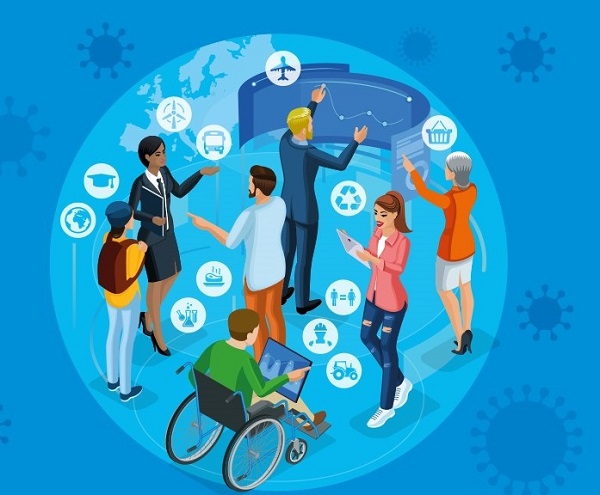
Eighteen months have passed since the World Health Organization declared the COVID-19 pandemic. To the number of cases that were declared in thousands at the time, now half a million are added per day. The most important element in the fight against the pandemic is individuals, and the organizations, networks, relationships that can affect these individuals and help them overcome difficulties. Civil society is very important here. Without civil society, it is not possible to include the voices of all individuals in decisions, nor to engage in an all-out effective struggle.
In March 2020, many optimists suggested that the coronavirus would evolve, become more benign, or even disappear with weather conditions or mutations. Another optimistic group said more realistically that we can contain the pandemic by using methods we know to be effective against the virus, namely by avoiding crowds, limiting our social relationships, quickly detecting cases, and isolating them from the back of society. Unfortunately, none of these happened.
Many countries made light of the fight against the virus, prioritized the economy, tourism, etc., did not build enough strong barriers in front of the free circulation of the virus. As a result, the virus, which could infect hundreds of millions and divide quadrillions of times, evolved, and took on new and more self-sufficient forms. ‘Leveled’ up with the Delta variant. The number of people found to have the virus in the world has exceeded 200 million, and the number of people who lost their lives due to the virus has exceeded 4.5 million. Moreover, we know that these numbers are only a part of the truth.
In order to prevent the Delta variant, which is transmitted 2-3 times faster than the original virus, we need to apply the measures we know before with greater meticulousness. Undoubtedly, we need to spread a tool, vaccination, which we did not have in the first year of the pandemic, to the entire population. For all this, we need to mobilize people who are tired of pandemic and precautionary measures. Everyone, each individual is very important in this pandemic. Sometimes one person’s negligence leads to many people getting sick or even dying. Every day we comply with the measures, we prevent the virus.
‘The most important element in the fight against the pandemic is individuals, and the organizations, networks, relationships that can affect these individuals and help them overcome difficulties!’
The most important element in the fight against the pandemic is individuals, and the organizations, networks, relationships that can affect these individuals and help them overcome difficulties. Undoubtedly, states have various tools that they can use for both persuasion and deterrence that can influence the behavior of individuals. The bans implemented in the past are among these tools.
However, in order to prevent the spread of the virus, which is understood to be together with us for a long time, and to prevent it from evolving and strengthening itself as it spreads, permanent behavioral changes and measures that each individual will participate knowingly and wholeheartedly are needed. Civil society is very important here. Reaching groups that the state cannot reach or that do not trust the state enough, addressing them in their language and within their cultural codes, recognizing the obstacles in front of individuals in order to change their behavior and helping them overcome these obstacles.
It is very critical to ensure the participation of society in all kinds of crisis management and, of course, in pandemic management. It was so at the beginning of this pandemic, and it is so now. Unfortunately, the pandemic management in Turkey was not successful in this regard. Far from paving the way for civil society, it banned municipalities from collecting aid in big cities as early as the spring of 2020. In line with the information, it received from the members of the Turkish Medical Association working in the field, it made accusations that almost equate it with treason, informing the public and warning those who manage the pandemic. It did not share data with academic and scientific circles, and even put various obstacles in the way of these circles collecting information about the course of the pandemic and conducting research. All this gave a negative message to civil society: ‘Stay away, I alone will do what needs to be done’.
‘Crises require an all-out response. Community participation is crucial both in making and implementing decisions regarding pandemic management.’
However, crises require a total response. That is why, for example, among the management recommendations recommended by the World Health Organization on pandemic management, ensuring community participation is at the forefront. Community participation is crucial both in making and implementing decisions regarding pandemic management.
Community Participation in Setting Priorities
Like all disasters, it is inevitable that there will be losses in the pandemic. The most important thing in the fight against the pandemic is to decide on the priorities, that is, what should be protected by mobilizing all available means. This seems like an easy decision to make, but it isn’t. Because when it comes to disasters, some things must be given up in order to protect some things. For example, President Erdogan announced increased measures in April, which they called ‘full lockdown’, while saying ‘we are doing full lockdown to protect tourism and trade’. In other words, he said that he prioritized tourism and trade, while asking some of the citizens to give up their small businesses, their daily work, and many citizens to give up their freedom to go out.
We have already observed that the administration has shown great care in tourism and trade since the beginning of the pandemic and is trying to keep these sectors alive by taking risks in terms of control of the pandemic. I do not agree with the management’s priorities in question. I think it is a priority to protect the lives of citizens, that is, to reduce the number of deaths and to open and keep schools open. We have lost one and a half years of our nearly twenty million children and youth. Being able to protect this was more valuable than the 35 billion dollars imagined coming from tourism. Not only spiritually, but also economically, Prof. Taymaz has calculated.
‘In Turkey, NGOs, apart from physician organizations, are in a deep silence about pandemic management.’
If we had implemented a strict quarantine at our borders in 2020 and 2021, we would have reduced deaths, opened our schools, and not stolen the future of millions of children and young people. Of course, other citizens can say other priorities. It is important at this point that the pandemic management encourages community participation. The more different segments of the citizens can express themselves, the easier it is to determine the priorities that the society will have in common.
Non-governmental organizations are also very important for citizens to express themselves. Unfortunately, NGOs in Turkey, apart from physician organizations, are in a deep silence about pandemic management. This has created and continues to create a great imbalance in the determination of the strategy to combat the pandemic, in favor of a privileged few with access to government, and against the majority of others.
NGOs for Every Citizen’s Active Participation in Preventing the Spread of the Virus
Every citizen can prevent the spread of the virus by getting tested if there are signs of illness, by not leaving the house and separating oneself from others, by following the mask and distance rule at other times and avoiding crowds. These are easy to say. In order to do this, people need to believe in the existence of the disease, the extent of the damage it brings, that they can be affected by it, and that these simple measures will work. Believing is related to emotions, it is related to your trust in the people and institutions that give you the information.
‘Both NGOs and opinion leaders can make invaluable contributions to individuals adopting the right behaviors.’
We know that there are various types of individuals in society. The people and institutions that each of them finds reliable are different. For this reason, both NGOs and opinion leaders can make valuable contributions to individuals’ adopting the right behaviors. The more organizations and the environment make an effort in this regard, the more individuals adopt positive behaviors in terms of preventing the pandemic.
The second and very important thing to do is to get vaccinated. Unfortunately, the Ministry of Health does not have a clear strategy on vaccines and has continued to give conflicting information and messages in the last year. This confuses people. A second, though few in number, are anti-vaxxers who operate with various personal motives and using various nonsense and unscientific arguments. They take advantage of every mistake made by the health authority about vaccines and confuse people. They are also effective on people who do not have confidence in the state or health authority for various other reasons, or who have weakened this trust. They cause hesitation, cause delays. For this reason, we have lost and continue to lose hundreds of thousands of people who were not vaccinated on time even though they had the opportunity. However, we have many non-governmental organizations, communication/interaction networks that are organized throughout the country, that can reach large segments and reach groups that others cannot reach, even if they are not large. If these forces come together, if more people are vaccinated more quickly, we will both prevent deaths and put a barrier in front of the spread of the virus.
NGOs have withdrawn into their shells in this pandemic. Like the rest of society, they first experienced a shock. Then maybe they were affected by the negative and wrong attitude of the administration, which sees rivals and tries to regress, instead of supporting civil society. Also, I think, unique to Turkish society, they thought of this pandemic as something that only ‘experts’ can understand and intervene, just like every other health-related issue.
‘Sivil Toplum Pandemi Koordinasyonu (Civil Society Pandemic Coordination) established by many NGOs. Sivil Toplum Pandemi Koordinasyonu (STPK) played a positive role especially in explaining the benefits of vaccines and reassuring its fellow citizens. Similar formations need to be established in many provinces and across the country.’
However, we see that civil society is very effective and successful in the fight against the pandemic in many countries. Another positive example from Turkey is the STPK, which was established in Diyarbakır by the Chamber of Commerce, trade unions, the Medical Chamber, and many NGOs. STPK played a positive role especially in explaining the benefits of vaccines and reassuring its fellow citizens. Similar formations need to be established in many provinces and across the country.
Unfortunately, this pandemic has taken many lives and continues to do so. We have very difficult days ahead of us. Without civil society, it is not possible to include the voices of all individuals in decisions, nor to engage in an all-out effective struggle.

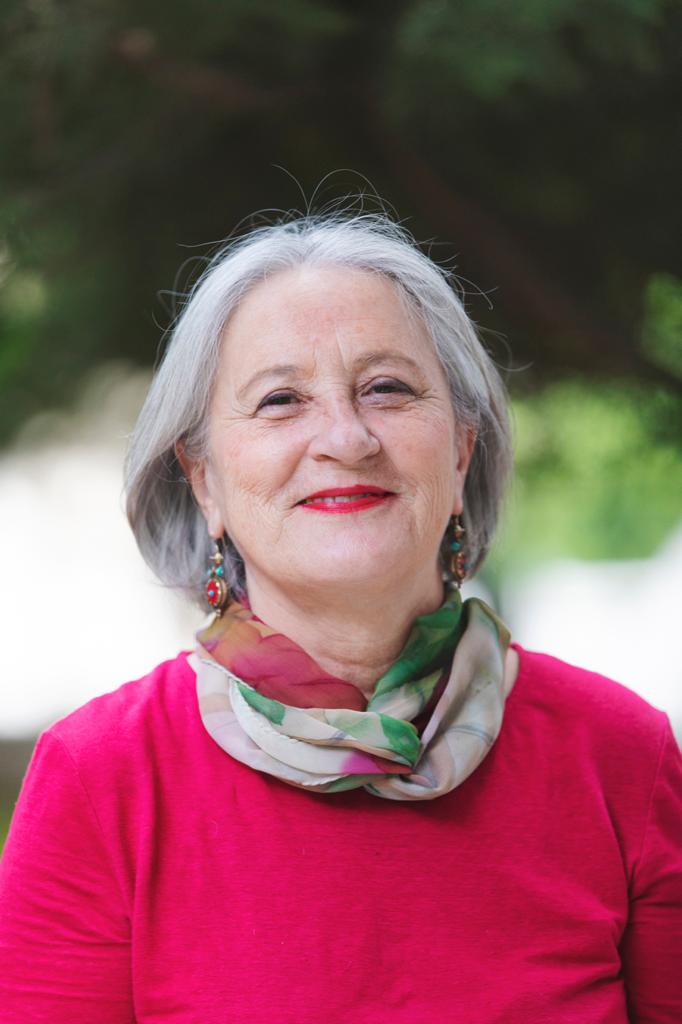




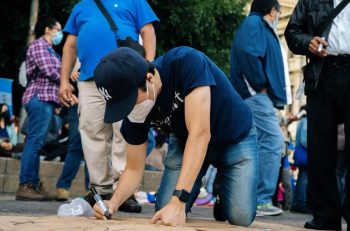
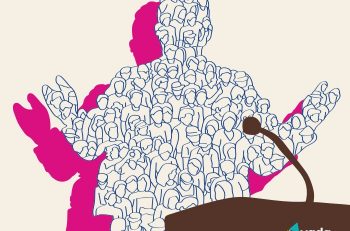
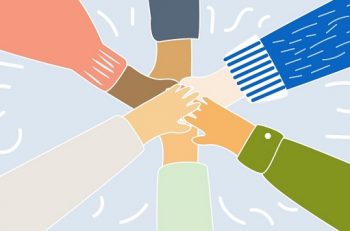
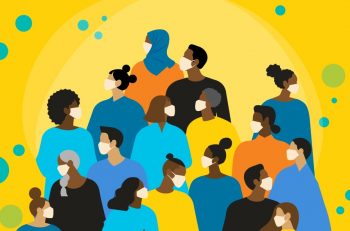
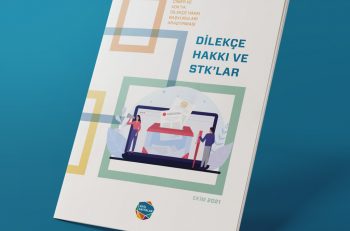
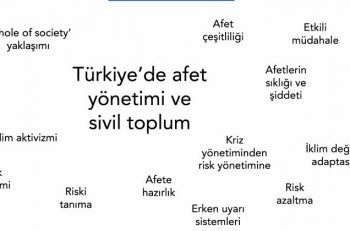


Bizi Takip Edin